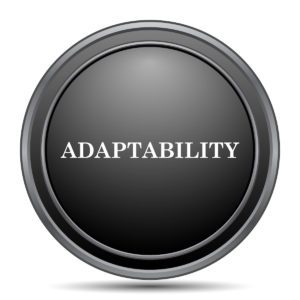Not every innovator should make an appointment to connect with me. There’s just not enough time in the day. We’re interested in speaking with innovators who are:
- Looking to raise capital (not grants), and
- Vision masters, not visionaries
The difference you ask? A visionary sees the future. A “vision master” makes the future.
Yes, I’d like every visionary to become a vision master, i.e. master the skills needed to make their vision real in the real world – the ability to manifest their vision even though circumstances are changing, requiring constant changes in the plan. But not every visionary, every innovator is a vision master or even can be. I want to hear from you if you’re getting close to vision mastery. I want to hear from you if you’re not sure, but think you are.
This doesn’t mean you know everything. Quite the contrary. Much of the time you’re going to be the dumbest person in the room, surrounded by experts you trust, with only your steadfast vision to guide you.
 You have to learn how to express your vision in a way that people get and want to follow, know what your good at and what you’re not, how to find and interview experts, how to trust them, how to delegate to them while keeping all sights on the vision, how to motivate them and strengthen their commitment to the vision, and how to hold them all accountable. If you can do all this, your own expertise is less important and you’re chances of success are much greater. Steve Jobs once said, “It doesn’t make sense to hire smart people and tell them what to do; we hire smart people so they can tell us what to do.” Steve Jobs became a vision master after much experimentation.
You have to learn how to express your vision in a way that people get and want to follow, know what your good at and what you’re not, how to find and interview experts, how to trust them, how to delegate to them while keeping all sights on the vision, how to motivate them and strengthen their commitment to the vision, and how to hold them all accountable. If you can do all this, your own expertise is less important and you’re chances of success are much greater. Steve Jobs once said, “It doesn’t make sense to hire smart people and tell them what to do; we hire smart people so they can tell us what to do.” Steve Jobs became a vision master after much experimentation.
In past blogs and research reports, I’ve drilled this point home in a hundred different ways. We’ve provided many examples of winning teams where the founder takes this point seriously. This is MY vision, that innovation teams everywhere adopt this point of view: seek to become a vision master not just a visionary.
This is why we named our institute “Intelliversity.” It doesn’t mean “intelligent university” but I have to admit I like the sound of that. What it means is a place where we, together build the “Intelliverse” — short for “Intelligent Universe.” This will make sense once you get the meaning of “intelligence.” Intelligence is not the ability to score high on a test or even the ability to think quickly. The bottom line is intelligence is “the ability to cause desired results in the real world.” Let that sink in. Ask yourself, “What does it really take to cause desired results in the real world?”
Causing desired results requires the ability to predict the results of your actions, so you take the right actions. So there’s a lot of science to intelligence — knowing specific actions create repeatable results. For example, knowing how rockets are built from a textbook is not enough to make the rocket launch correctly instead of blowing up. You have to know and implement thousands of technical details so that when you light the engine, the rocket goes where you intended. That’s intelligence, at least part of it, maybe the IQ part.
But do you yourself, the founder, have to be high-IQ to be a vision master?
Here’s a clue: Many, maybe most, situations are not repeated like a rocket launch; they happen only once. So intelligence also requires a finely tuned intuition — the ability to recognize a pattern in the situation at hand and anticipate intuitively what actions will cause what results in that situation. Some call this kind of intelligence AQ – Adaptability Quotient. Business decisions are like this. Knowing when to persist with a plan and when to give up and pivot is like this. Knowing when your own intuition is good enough and knowing when to ask for advice is like this. There’s a lot to AQ.

Those of you in AI will recognize that both kinds of intelligence are used in AI: rules-based expert systems and neural network-based pattern recognition and response. (This is oversimplified, but it is good enough for this essay.) AI has a long way to go to catch up with human intelligence in being able to combine these two forms of decision-making so fluidly in the real world. Intelliversity is dedicated to honoring humans who have mastered decision-making in the real world – vision masters.
And there’s more. Leadership involves other human beings. This is where EQ comes in — the ability to sense and predict how other people will react to your actions.
So as I write this, I’m thinking total practical intelligence, the ability to make desired results happen in the real world — which means for an innovator, to see your vision real in the real world takes:
IQ + AQ + EQ.
And there’s more because if your personal habits are unproductive, no amount of IQ + AQ + EQ will get the desired results even if you have a great team. If you want to be a vision master, get control over your time-wasting habits, your impulsive decision-making, and your personal addictions. They just don’t serve your purpose.
This brings me full circle back to the beginning of this blog. I’d like to talk with you if you think you’re a vision master looking to raise capital for your latest innovation. Our unique methods of raising capital quickly, the “fast track to funding” involve showing investors what you really are, not just how great your latest innovation.
 To sum it up with an analogy, it’s all about the jockey, not the horse, but it’s got to be the right kind of jockey. If you’re the right kind of jockey, if you’re a vision master or close to it, we’ll show you how to make the money
To sum it up with an analogy, it’s all about the jockey, not the horse, but it’s got to be the right kind of jockey. If you’re the right kind of jockey, if you’re a vision master or close to it, we’ll show you how to make the money
If you’re not, continue to read this blog and our research reports. It will start to sink in and you will evolve, and then when the time comes, make an appointment to talk. It’s never too late to be a vision master.
So what’s next?
- My calendar is open to those who are ready to venture forth as vision masters.
- Comments welcome! To comment on this article, view it on LinkedIn.
